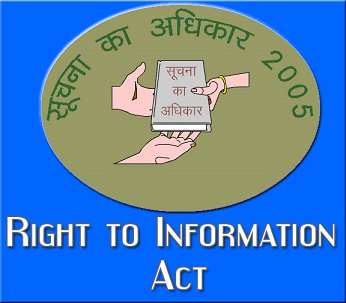The Supreme Court of India [a bench comprising of the Chief Justice H.L. Dattu, Justice Arun Mishra and Justice Amitava Roy] dismissed a petition seeking information of the Medical Expenses in the last 3 years of the Judges of the Supreme Court, whether retired or serving, and also seeking for a direction that the Registry should maintain separate records of every judge of their medical expenses.
 The Special Leave Petition (SLP) was filed by the well known RTI activist Mr. Subhash Chandra Agarwal and was being represented by Mr. Prashant Bhushan, Advocate. In the year 2010, Subhash Agarwal had filed an RTI application seeking for information regarding the medical expenses of the last 3 years of the Judges of the Supreme Court of India whether serving or retired. The relevant paragraph from his RTI application is quoted below :
The Special Leave Petition (SLP) was filed by the well known RTI activist Mr. Subhash Chandra Agarwal and was being represented by Mr. Prashant Bhushan, Advocate. In the year 2010, Subhash Agarwal had filed an RTI application seeking for information regarding the medical expenses of the last 3 years of the Judges of the Supreme Court of India whether serving or retired. The relevant paragraph from his RTI application is quoted below :
“5. Details of medical-facilities availed by individual judges (including of their family-members) of Supreme Court in last three years mentioning also expenses on private treatment in India or abroad. Honourable Delhi High Court has recently ruled (probably on 11.10.2010) that “The information on the expenditure of the government money in an official capacity cannot be termed as personal information.”. I do not want information on nature of diseases but only detailed information about expenses on medical-facilities on judges and their families at public-expenses.”
The application on the said point was transferred to the Chief Public Information Officer (CPIO), Supreme Court of India, who rejected the application. Then an appeal was preferred before the First Appellate Authority who again dismissed the appeal.
Later, an appeal was preferred to the Central Information Commission (CIC) who allowed the appeal and directed the CPIO to provide,
“the total amount of medical expenses of individual judges reimbursed by the Supreme Court during the last three years, both in India and abroad, wherever applicable.”
The CPIO complied with the order of the CIC and also informed that the judge-wise information was not maintained as the same was not required to be maintained.
Later a petition was preferred to Delhi High Court by the Registrar, Supreme Court of India, which was allowed by Justice Vibhu Bakhru of the High Court, holding that,
“12. Further, the extent of medical reimbursement to an individual is also, in one sense, personal information as it would disclose the extent of medical services availed by an individual. Thus, unless a larger public interest is shown to be served, there is no necessity for providing such information. Thus, clearly, a direction for maintaining records in a manner so as to provide such information is not warranted.
13. I had pointedly asked the learned counsel for the respondent if there was any larger public interest that was being pursued and he fairly did not answer in the affirmative.”
The said petition was allowed by Justice Vibhu Bakhru and the pending application was dismissed due to lack of public interest in seeking the said information and the court also observed that because the impugned order is limited to directing maintenance of records in a particular manner, it was not found necessary to examine other contentions.
Against this order of the High Court, an SLP was preferred in the Supreme Court of India by the RTI activist Subhash Chandra Agarwal which was dismissed today i.e. on 2nd July 2015. You can read the order here.
As reported by the Times of India, Chief Justice H.L. Dattu observed that, if today the SC allows the application then tomorrow there will be an application seeking for the details of the medicines consumed by the Judges and once the people get to know the medicines consumed by the judges, it can be easily deciphered what all ailments are the judges suffering from, which is a clear intrusion upon their privacy.
Prashant Bhushan, Advocate for the petitioner said that this would send a wrong signal to the public because we speak of transparency in the executive and politics but do less when it comes to judges.

